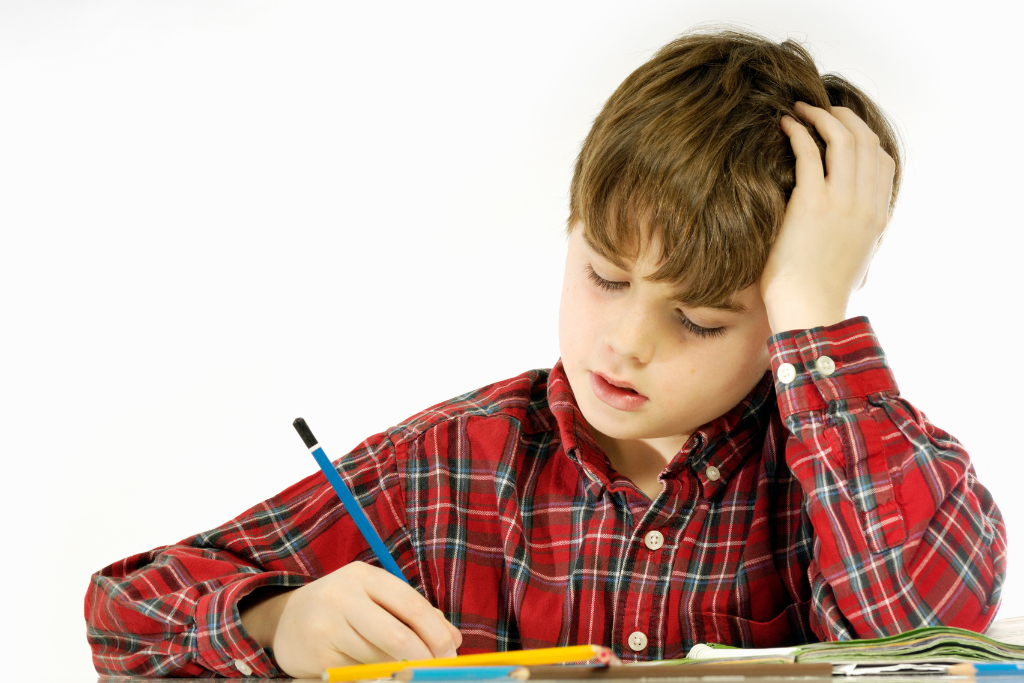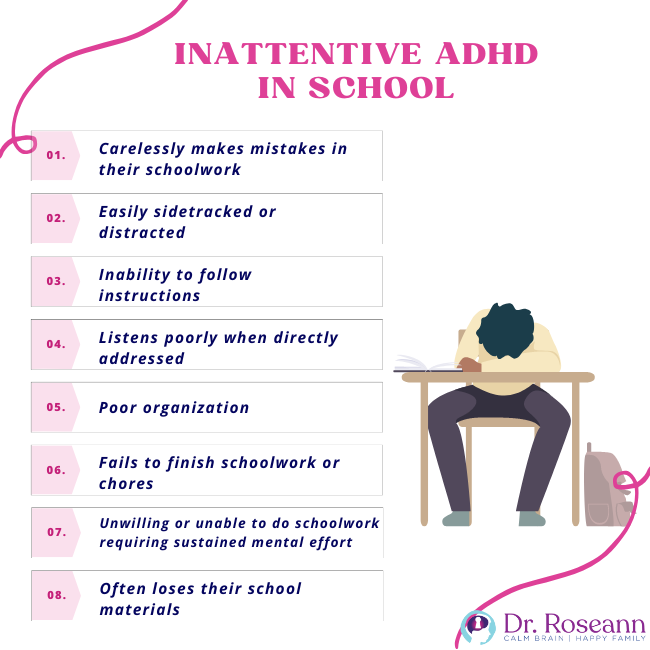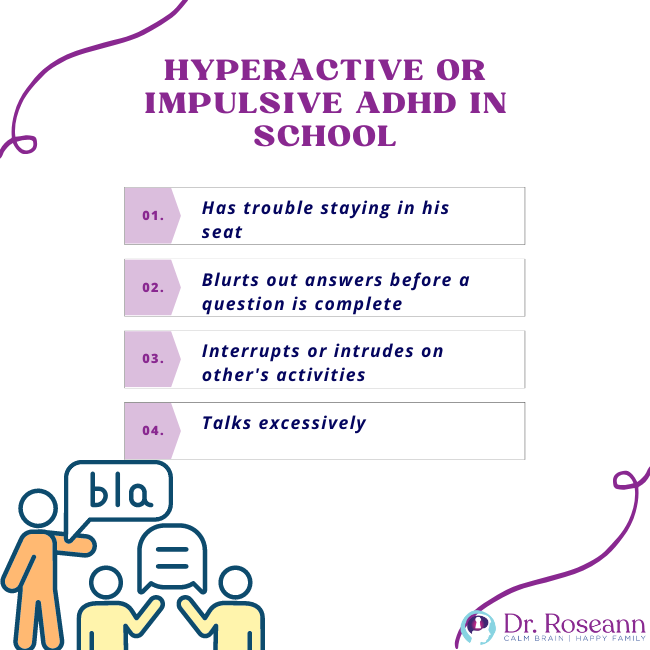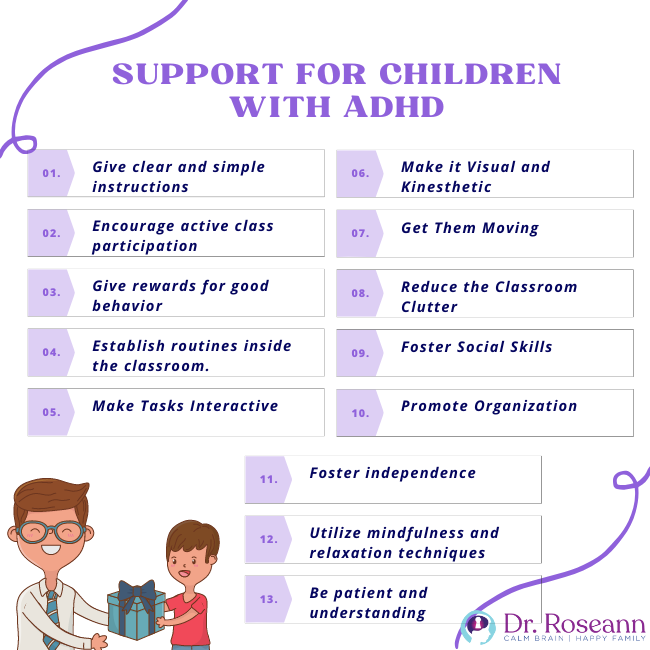One out of ten children has Attention Deficit Hyperactivity Disorder. ADHD must be diagnosed early on since it can persist into adulthood. The key to success is teaching kids practical coping skills to compensate for their shortcomings. Time management, improved social skills, and good communication can help greatly.
Children with ADHD also have hyperactivity, impulsivity, and/or attention problems. Kids with ADHD can be impulsive and therefore not very connected to the moment or others' perspectives. It is usual for kids with ADHD to have difficulty regulating their behaviors and emotions because of their inward focus and dysregulated brainwave activity.
All children and teens with ADHD struggle with executive functioning, which impacts how they plan for a future activity or task. Additionally, they may have issues with organization and focus as a result of poor executive functioning. Throughout a child's academic life, these ADHD behaviors can negatively impact their academic performance.
There are different types of ADHD, such as predominantly inattentive, predominantly hyperactive-impulsive, and combination presentation, which means that no two children with ADHD look the same.
Predominantly inattentive presentations are usually less disruptive. An inattentive child shows symptoms of sustained attention deficit or inattentiveness. These kids have short attention spans and may need more homework time, which can be a huge source of conflict between a parent and child.
Even though children who are primarily inattentive may be viewed as less impacted by their ADHD, that just isn't the case for most. While they may get in trouble less frequently, these children and teens struggle to complete tasks.
Conversely, children diagnosed with hyperactive-impulsive ADHD are recognized because they exhibit disruptive behavior. Sitting and doing seatwork, keeping their hands to themselves, and getting along with others are common issues. In addition, social issues may arise due to their high energy level and impulse control issues.
Children who are diagnosed with the combined type of ADHD means they exhibit symptoms found under the two types described above. Their symptoms of inattention and hyperactivity are evenly balanced between struggling with remaining focused and controlling impulses. To improve the academic achievement of these kids, they may need to undergo behavior modification.
A child with ADHD will have difficulties performing optimally in school. Independently starting and finishing tasks seems to be the biggest pain for anyone with ADHD. Many need help adapting to the educational system used in most public schools and may require special education services or a 504 plan.
The child's teacher and the school counselor typically assume the responsibility of providing or coordinating appropriate support to these kids so they can perform well in the existing school system.
Inattentive ADHD in School
If your child shows signs of ADHD inattentive type, then these are the common school-related symptoms of inattentiveness that you'll observe:
1. Carelessly makes mistakes in their schoolwork
Careless mistakes lead to performance deficits in students with ADHD and prevent them from demonstrating their knowledge (DuPaul & Langberg, 2015). For these school-aged children, making mistakes seems like a regular occurrence because they tend to overlook some crucial details
2. Easily sidetracked or distracted
Some children with ADHD absorb and retain very little information in the classroom because they are so easily distracted. For this reason, kids have trouble concentrating on tedious tasks (Selikowitz, 2006).
3. Inability to follow instructions
People with ADHD have difficulty following instructions. Despite appearing to understand and even writing down instructions, students with ADHD may execute directions incorrectly or submit the wrong homework.
4. Listens poorly when directly addressed
Kids with ADHD can have listening and comprehension problems, especially in a busy classroom with rapidly spoken language or distracting noisy surroundings. Such kids lose track of the conversation or miss some details when listening, so they fail to remember important information.
5. Poor organization
Children with ADHD have poor executive functioning. As a result, they need to learn better organizational skills. A child with ADHD must create routines and systems that would allow them to stay organized in school. The use of calendars, binders, and incentives may help.
6. Fails to finish schoolwork or chores
Getting ADHD kids to finish their schoolwork or chores is challenging. Support them by creating an ideal working environment and making learning exciting and interactive. Break their tasks into smaller chunks so they can pause for a moment.
7. Unwilling or unable to do schoolwork requiring sustained mental effort
Your child may be able to focus on specific, preferred tasks but resist difficult or low-interest ones. For example, getting their homework done may cause them a lot of trouble and conflict. Therefore, they need help maintaining sustained attention and persisting toward their goals (Barkley, 2011).
8. Often loses their school materials
ADHD kids are easily distracted. As a result, they may need help to keep their belongings organized. Because of this, they tend to lose what they need for school, such as books, papers, and other supplies. Helping your kid manage the things in their backpack can help a lot.
Hyperactive or Impulsive ADHD in School
Kids and teens with hyperactive-impulsive presentation will often show these ADHD symptoms and behaviors in school:
1. Has trouble staying in his seat
It is difficult for kids with impulsive behavior problems to stay seated for long periods. So allowing those students to move around is helpful. Teachers and parents can help them by giving them written task cards or a checklist of what they can do while sitting.
2. Blurts out answers before a question is complete
Children with ADHD tend to complete other people's sentences. They also can't wait for their turn in conversations. Children may do this because they fail to think things through before saying anything. They also tend to be forgetful, so they must yell out the answers before they forget them. These kids tend to be disorganized in their thoughts, affecting how they handle every conversation.
3. Interrupts or intrudes on others' activities
Kids with ADHD have a lot of energy they need to release, and they rarely can wait for the right time to release it. As a result, they tend to interrupt or intrude on other people's activities or conversations.
4. Talks excessively
ADHD kids talk a lot because they're either nervous or excited. They want to be part of the conversation. Some talk to fill in the silence as that is difficult to bear for them. However, these kids also tend to talk about themselves or anything that interests them, which others interpret negatively.
Support for Children with ADHD in the Classroom
A teacher should make accommodations for a child who has ADHD. By doing so, they will have a better chance of succeeding, and classroom disruptions will be reduced. Here are some behavioral interventions teachers and school psychologists can use to help young children improve their academic skills.
1. Give clear and simple instructions
It is essential to simplify all tasks, assignments, and instructions. Before giving instructions, ensure you have the ADHD child's full attention. The best way to achieve this is to repeat the instructions. Practice patience. Make eye contact with the child to let them know you're speaking to them or tell them instructions are coming. Don't forget to give the child clear expectations as well.
2. Encourage active class participation
Group work and pair learning are effective strategies for students with ADHD. Oral responses also provide good results. To maximize understanding, allow students to work on a problem in pairs or groups and have them use visuals such as mind maps or use a whiteboard to stay on track.
3. Give rewards for good behavior
ADHD children often have low self-esteem and believe that they have trouble meeting expectations. Encourage and reward appropriate behavior or attempts for completing the tasks with stickers or a points chart. ADHD students respond well to immediate feedback. It's always a good idea to praise and encourage them. Positive reinforcement can go a long way.
4. Establish routines inside the classroom.
Children with ADHD benefit from a predictable routine and clear expectations. Establishing a structured schedule and consistent rules can help them feel more secure and focused.
Routines allow students with ADHD to stay on track. Make routines and stick to them. By doing this, students with ADHD remain focused and reduce distractions and changes. Routines can be as simple as writing homework assignments on the board daily.
5. Make Tasks Interactive
Try to make academic work as interactive as possible. An ADHD child may experience containing their energy and experience rejection from their peers. Ensure that all children in your class can participate in physical activity. For example, doing simple exercises refreshes them and helps them burn off excess energy.
6. Make it Visual and Kinesthetic
Children with ADHD are almost exclusively visual or kinesthetic learners, so avoiding primarily verbal instructions is important. Movement keeps the ADHD brain alert and engaged, and that means learning will increase and negative behaviors will reduce.
Visual aids such as pictures, graphs, and charts can help children with ADHD understand and retain information better.
7. Get Them Moving
Children with ADHD often have unmet sensory needs, and regular movement can help reduce negative behaviors and inattentiveness. Sensory movement should be structured and regular, and even though many teachers think it will disrupt learning, it really is quite the opposite. Regular movement calms the brain and behavior.
8. Reduce the Classroom Clutter
A noisy, cluttered environment can distract children with ADHD. Try to create a calm and organized learning environment by reducing clutter, controlling noise levels, and using calming colors.
9. Foster Social Skills
Children with ADHD often struggle with social skills. Encourage interaction and cooperation with classmates, and provide opportunities for children to practice their social skills in a supportive environment.
10. Promote Organization
Children with ADHD often struggle with organization. Teach organizational skills, such as using a planner or keeping a to-do list, and provide ongoing support and reinforcement.
11. Foster independence
Encourage children with ADHD to take responsibility for their learning and behavior. Provide opportunities for them to make decisions, solve problems, and be accountable for their actions.
12. Utilize mindfulness and relaxation techniques
Mindfulness and relaxation techniques, such as deep breathing exercises, can help children with ADHD manage their symptoms. Teach these techniques and encourage children to use them when they feel overwhelmed. A calm brain is an alert brain that can retain and alert better.
13. Be patient and understanding
Children with ADHD need extra patience and understanding. They get a lot of negative messages that lead to serious self-concept and self-esteem issues. They are often very sensitive and misperceive things as a result. Avoid criticizing or shaming them for their behavior. Instead, focus on positive reinforcement and encouraging progress.
It is important for parents to remember that if your child's teacher has concerns about the behavior or attention of your child, you should listen and look for solutions. There are many natural solutions, and medication isn't the only option! There are many evidence-based solutions to consider, including PEMF and neurofeedback.
Listen to Gayle's story of what she said and did and when the teacher told her to medicate her daughter. It really is an incredible story of how one comment promoted a mom to get her child the right diagnosis and help.
Citations
Barkley, R. (2011). The Important Role of Executive Functioning and Self-Regulation in ADHD©. https://russellbarkley.org/factsheets/ADHD_EF_and_SR.pdf
DuPaul, G. J., & Langberg, J. M. (2015). APA PsycNet. Psycnet.apa.org. https://psycnet.apa.org/record/2014-57877-006
Selikowitz, M. (2006). ADHD: The Facts. Oxford University Press.
Always remember… “Calm Brain, Happy Family™”
Are you looking for SOLUTIONS for your struggling child or teen?
Dr. Roseann and her team are all about solutions, so you are in the right place!
There are 3 ways to work with Dr. Roseann:
You can get her books for parents and professionals, including: It’s Gonna Be OK™: Proven Ways to Improve Your Child’s Mental Health, Teletherapy Toolkit™ and Brain Under Attack: A Resource For Parents and Caregivers of Children With PANS, PANDAS, and Autoimmune Encephalopathy.
If you are a business or organization that needs proactive guidance to support employee mental health or an organization looking for a brand representative, check out Dr. Roseann’s media page and professional speaking page to see how we can work together.
Dr. Roseann is a Children’s Mental Health Expert and Therapist who has been featured in/on hundreds of media outlets including, CBS, NBC, FOX News, PIX11 NYC, The New York Times, The Washington Post,, Business Insider, USA Today, CNET, Marth Stewart, and PARENTS. FORBES called her, “A thought leader in children’s mental health.”

She is the founder and director of The Global Institute of Children’s Mental Health and Dr. Roseann Capanna-Hodge. Dr. Roseann is a Board Certified Neurofeedback (BCN) Practitioner, a Board Member of the Northeast Region Biofeedback Society (NRBS), Certified Integrative Medicine Mental Health Provider (CMHIMP) and an Amen Clinic Certified Brain Health Coach. She is also a member of The International Lyme Disease and Associated Disease Society (ILADS), The American Psychological Association (APA), Anxiety and Depression Association of America (ADAA) National Association of School Psychologists (NASP), International OCD Foundation (IOCDF) International Society for Neurofeedback and Research (ISNR) and The Association of Applied Psychophysiology and Biofeedback (AAPB).
© Roseann-Capanna-Hodge, LLC 2023
Disclaimer: This article is not intended to give health advice and it is recommended to consult with a physician before beginning any new wellness regime. *The effectiveness of diagnosis and treatment vary by patient and condition. Dr. Roseann Capanna-Hodge, LLC does not guarantee certain results.
















